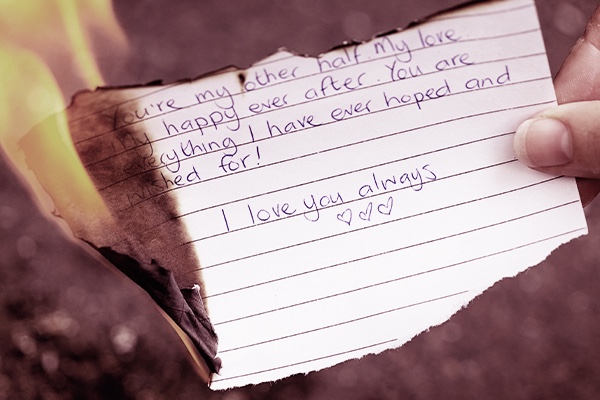How to Build Resilience Without Losing Your Edge
Rejection. Just the word stings a little, doesn’t it? Whether it’s a polite “I’m not looking for anything serious” or the dreaded ghosting (you know, when they disappear faster than your last paycheck), rejection after a date has become commonplace. But here’s the thing—how you handle rejection can define your dating experience far more than the rejection itself.
Modern dating is full of highs and lows, and rejection isn’t just inevitable—it’s part of the process. What separates the serial wallowers from the emotionally resilient is the ability to pivot, grow, and maintain your confidence. The good news? Rejection is rarely personal. The even better news? With the right mindset, you can turn it into a stepping stone rather than a setback.
So, if you’ve ever been ghosted, benched, breadcrumbed, or flat-out rejected (and who hasn’t?), this guide is for you.
Why Rejection Feels Like a Gut Punch (and Why It’s Not Your Fault)
Let’s start by addressing the emotional elephant in the room: rejection hurts because, biologically, it’s meant to. Research from Psychological Science reveals that rejection activates the same brain regions as physical pain.
When rejected after a date, it’s easy to spiral into self-doubt. Was I boring? Did I come on too strong? Should I have ordered something sexier than a Caesar salad? But let’s cut the overthinking. Most rejection has little to do with you and everything to do with timing, compatibility, and the other person’s emotional readiness.
Understanding this is the first step toward handling rejection like a pro. The second step is to stop assigning blame where it simply doesn’t belong.
Rejection Culture in Modern Dating: Why It’s Everywhere
Thanks to dating apps and social media, we’re more connected—and yet, somehow, more disposable—than ever before. The rise of swipe culture has created a dynamic where options feel endless, and attention spans are short. If you’ve ever felt ghosted or dismissed without explanation, you’ve experienced the downsides of this phenomenon.
But rejection in dating isn’t just about digital overload. It’s also about emotional maturity. Many people ghost or reject without clarity because they lack the emotional bandwidth to navigate uncomfortable conversations.
What does that mean for you? Rejection is often more of a reflection on them than on you. It’s about their inability to communicate, not your failure to impress.
Build Resilience & Bounce Back Better
The real power move isn’t avoiding rejection—it’s handling it with grace. Here’s how:
1. Reframe the Narrative
Instead of seeing rejection as a failure, view it as valuable feedback. Each experience is a filter pushing you closer to someone who’s right for you. Think of that saying, “When one door closes, another one opens,”– every “no” is one step closer to what you’re looking for.
- Say to yourself: “This wasn’t rejection. It was redirection.”
2. Embrace Emotional Detachment
This doesn’t mean becoming cold or indifferent. It’s about detaching your self-worth from someone else’s opinion.
- Practice reminding yourself: “I am whole and worthy, regardless of their response.”
3. Vent, Then Move On
Feel your feelings. Call a friend, rant for 10 minutes, journal about it—whatever you need to process the rejection. But set a time limit on the pity party. After that, redirect your energy toward something productive such as work, gym, or more creative hobbies.

4. Avoid the Post-Rejection Spiral
Don’t stalk their Instagram, dissect their last text, or obsess over what you could have done or said differently. It’s tempting, but it’s also toxic. The truth is, most rejections are more about mismatched timing or chemistry than anything you did.
Common Rejection Scenarios (and How to Handle Each Like a Boss)
1. The Ghoster
You went on a date, had a good time, and now… radio silence. This one’s frustrating because you’re left with no answers. However, you don’t need closure from someone who ghosted you. Their lack of communication speaks for itself.
How to Handle It:
- Don’t send the follow-up text asking what went wrong. Respect yourself enough to walk away.
- Unfollow them if seeing their posts triggers negative feelings.
Boss Move: Text anxiety is real, but you don’t need validation from someone who doesn’t value your time. Instead, practice self-closure: “They weren’t ready for what I bring to the table. Next.”
2. The “It’s Not You, It’s Me” Speech
Ah, the classic rejection line. Maybe it’s genuine. Maybe it’s a cop-out. Either way, it’s their way of saying, “We’re not a fit.”
How to Handle It:
- Respond with grace: “Thanks for being honest. I appreciate it, and I wish you the best.” Then, leave it at that.
Boss Move: Recognize that honesty—even if it stings—is better than ghosting. Take it as a sign of emotional maturity and move forward, knowing you can handle hard conversations like a pro.
3. The Friend-Zoning
They think you’re great but “just not romantically.” Ouch.
How to Handle It:
- Don’t argue or try to change their mind. Accept their perspective and maintain your self-respect.
- If you genuinely want to be friends, fine. If not, it’s okay to step back.
Boss Move: Realize that being friend-zoned isn’t a rejection of your character. It’s about chemistry, which can’t be forced. Thank them for their honesty and channel your energy elsewhere.
What to Avoid After Rejection
A single date doesn’t define you. It’s easy to spiral into self-doubt, wondering if you weren’t attractive, interesting, or successful enough. But rejection is frequently about compatibility, timing, or personal circumstances. Instead of seeing rejection as a statement of your value, reframe it as redirection—this just wasn’t your person, and that’s okay.
When rejection hits, there’s a strong temptation to seek reassurance—whether by texting an ex, posting thirst traps, or chasing compliments from friends. While a confidence boost might feel good in the moment, seeking external validation won’t fix internal insecurities.
It’s always tempting to lash out, send a dramatic message, or delete them from your life in a moment of frustration. But unless they were truly disrespectful, keeping things civil is often the wiser move. The most powerful move after rejection? Handle it with class and let them see what they’re missing.
Turning Rejection into Growth
Some of the most self-assured people you know have probably been rejected more than they can count. The difference? They used those moments as lessons, not setbacks. Each rejection is an opportunity to reflect, fine-tune your dating approach, and strengthen your emotional resilience.

Take inventory: Did you ignore any red flags? Were there moments when your intuition warned you, but you pushed through? Or maybe you did everything right, and they just weren’t a match—because, yes, sometimes rejection happens even when you play it perfectly.
FirstDate Final Thought: Rejection Is Proof You’re Taking Risks
Rejection is part of dating because dating itself is a risk. Every time you put yourself out there, you’re proving your willingness to seek connection, and that’s something to be proud of. Handling rejection like a pro means recognizing it as part of the journey, not the end of it.
So, don’t shrink after rejection—stand taller. Keep dating, keep risking, and keep growing. The right match will value your persistence and emotional strength. And when you do meet them, all the rejections that came before will be nothing more than background noise.








